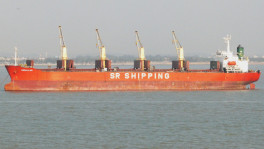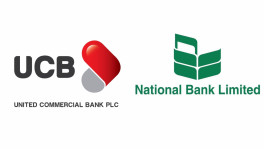Green buildings gain momentum in Bangladesh, now it’s time for a proper regulation
Over the past decade, the push towards ‘green’ building is gaining momentum in Bangladesh

The sustainable or "green" buildings implicate proficient use of resources in constructing homes, offices, schools and other sorts of buildings. The popularity of green building construction has given rise to a variety of approaches that aim to guide architects, designers, materials providers and builders on how to build "green."
Buildings – whether it is residential, commercial or industrial – have wide-ranging direct and indirect impacts on the environment. During their construction, renovation or demolition, buildings use energy, water, raw materials, and generate waste and emit potentially harmful atmospheric emissions. These facts have prompted the formation of green building standards, certifications and rating systems aimed at alleviating the impact of buildings on the natural environment through sustainable design.
The push toward sustainable design gained momentum with the unveiling of the Building Research Establishment's Environmental Assessment Method (BREEAM) in 1990, the first green building rating system in the world. This resulted in the focus on project rather than on product. In 2000, the US Green Building Council (USGBC) followed this pursuit and established criteria targeted at improving the environmental performance of buildings through its Leadership in Energy and Environmental Design (LEED) rating system for new construction. Since then, LEED has continued to grow in eminence, embracing rating systems for existing buildings and entire neighborhoods. The four LEED certification levels are designated as Platinum, Gold, Silver and Certified.
In 2008, the Sustainable Built Environment Initiative – Bangladesh (now Bangladesh Green Building Council) was founded. They assembled all the major stakeholders in one platform and worked towards implementing their common goal of making the country "greener". They proposed a centralized board which will offer LEED certification to any firm or project who are interested in attaining it. Over the years, this certification has become the gold standard in sustainable green building all around the world.
Many new projects in Bangladesh during the past decade gained LEED certification. This is gradually becoming a norm towards sustainability. There are 122 LEED-certified buildings in Bangladesh, of which 24 are in Dhaka. Majority of them are industrial factories as this sector is responsible for most pollution. At the same time, more and more commercial buildings are moving towards getting certified. The certificate is given generally on various parameters like sustainability, energy efficiency, recycling ability, environmental quality etc.

Presently, there is no designated green building rating system in Bangladesh. As most developers and factory owners are intended to construct "green" and energy-efficient buildings, LEED certification is becoming popular for high-end commercial and textile factories. Bangladesh Bank is supporting energy efficiency with soft loan facilities under their refinancing scheme. Single-digit loan (maximum 9 percent) facilities are available for LEED-certified factories. This sort of contribution through sustainable banking principle is commendable for accelerating green construction.
But existing policies presupposes a passive approach towards energy efficiency in building construction. The Dhaka Mahanagar Imarat Nirman Bidhimala (2008) mainly focuses on enforcement of the building set back, floor area ratio, maximum ground coverage, mandatory open space which replicates passive approach to reduce the energy usage in the building. Active regulation and squared technical inspection for reducing energy usage are mandatory to implement the motto of "going green" with vertical development.
The proposed Bangladesh National Building Code (BNBC) is designed to speed up green building principles. A separate chapter is dedicated in the BNBC to enhance the design and construction of buildings. The goal is to achieve a positive environmental impact by encouraging sustainable construction practices, conserving energy, water and building materials, and promoting resource efficiency.
Earlier, the Housing and Building Research Institute developed "Recommendation for Green Building Code" (2012) with the technical assistance of IFC. Its target is not only on resource efficiency but also on the reduction of environmental impact. The survey for the Recommendation of Green Building Code portrayed that the baseline energy consumption of Dhaka is about 277MW a year. According to this study, the Green Building Rating for future buildings will save 300MW energy per year which is equal to the set-up of one power plant in each year.
Present construction system in Bangladesh is not energy and water efficient which leads to high energy and water demand in the sector. Electricity supply and consumption in the country has almost tripled in the last decade. The main source of electricity is fossil fuels, accounting for 96 percent of the total output, leading to high GHG and intensive power generation. The energy consumption projection also delineates the required energy generation to be used in different sectors.
It is evident from the experiences of the neighbouring countries that rating or labelling the system for green buildings is an effective tool for incentivizing the construction sector to convert the whole process "greener" by taking more sustainable building practices. But it requires a multi-dimensional approach to avail the benefits. In this regard, various collaborative actions such as raising awareness on pay-back periods, creating technical expertise of green building and easing the access to affordable finance need to be reflected in the forthcoming regulations.
Farzana Akther is working currently as a lecturer at the Department of Law and Human Rights in the University of Asia Pacific.
Disclaimer: The views and opinions expressed in this article are those of the authors and do not necessarily reflect the opinions and views of The Business Standard.


 Keep updated, follow The Business Standard's Google news channel
Keep updated, follow The Business Standard's Google news channel
















